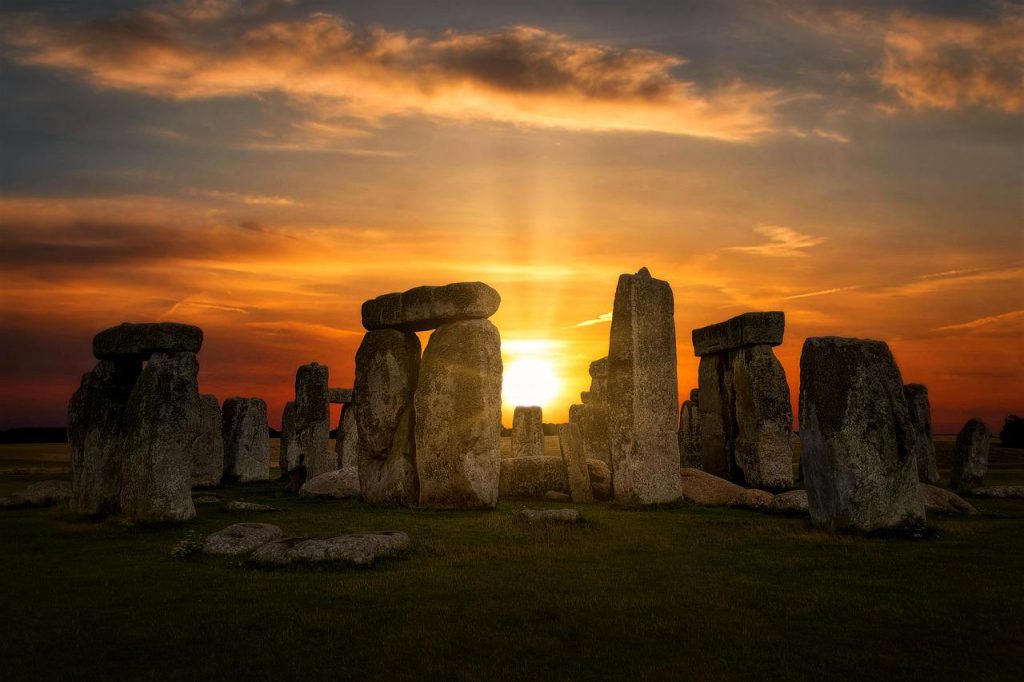Many of our international students may not be familiar with how the UK health system works and so here is a very simple guide to help. A list of some local services for Bristol and Bath is included at the end of this post.
A lot of our health services are provided by the National Health Service (NHS).
Details of services available to Bristol and Bath students can be found at the end of this post.
Accidents and Emergencies – available 24 hours a day. Call 999
If you have a serious accident or need urgent medical care for a life-threatening condition, you should call 999 from your phone and ask for an ambulance. Or it is safe to do so, you can go to your nearest hospital Accident and Emergency room (often referred to as A&E). You will be seen by a receptionist when you arrive and then you will be assessed by medical staff before you are seen for further treatment/investigation.
You should expect to wait to be seen – average times vary but can be up to 4 hours, depending on the seriousness of your situation.
Not sure if you should visit A&E or would like some advice? Call 111 or visit https://111.nhs.uk/
The NHS 111 service is available 24 hours a day. When you call, you will be asked several questions about yourself and your condition and you will be told what to do next, which could be to see a doctor, go to A&E or they may make you an appointment at an urgent treatment centre/minor injury unit. They may also advise you to see a pharmacist to get some medication.
Urgent treatment centre/minor injury unit
These are separate from A&E and you can go to an urgent treatment centre if you need urgent medical attention, but it’s not a life-threatening situation. These services are open at least 12 hours a day, every day – details below.
Doctors – by appointment only
In the UK, medical doctors working in the community are referred to as General Practitioners or GPs. They are often the first point of contact when we feel unwell and work out of GP Surgeries or GP Practices.
You cannot go to a GP surgery/practice without first registering and then making an appointment.
How you make an appointment will depend on the surgery. Some will offer an online system, others will need you to call them directly – you may be kept on hold, while you wait to speak to someone.
When it’s your turn, you will speak with the receptionist first and you should be prepared to explain why you need to see a doctor – this helps them decide which service you require. Sometimes you may be offered a telephone appointment, where the doctor will call you or you may be offered an in-person appointment at the surgery with a doctor or nurse.
Depending on how serious your condition is, you may have to wait to see a doctor, it could be up to two weeks.
Student Health Service
If you live in the practice area you will be able to register with the Student Health Service, which offers a full GP surgery to university students and their families.
If your condition changes or gets worse, whilst you are waiting to see the doctor, you can call 111 for advice or 999 if life-threatening.
If you no longer need to see the doctor, please cancel your appointment.
Pharmacists
If your doctor decides you need medication, you’ll need to collect it at a pharmacy. Your doctor will write a prescription which they can give to you or can send directly to your nominated pharmacy (you may have nominated one when you first registered at the surgery)
If you are feeling unwell or have a simple problem – a cough, common cold, flu-like symptoms, mild eye or ear infection. – you can go directly to the pharmacy and ask for their advice as they can offer a variety of medicines without a prescription.
In the UK most people have to pay for their medicine/prescriptions, however, you can check to see if you are entitled to free prescriptions here.
If you think you have a more serious condition, you can call 111, arrange to see your doctor, or if severe, go to A&E. You should not put off seeking help if you are unwell.
For further information on health services for international students, please visit: http://www.bristol.ac.uk/students-health/international-students/
For further info on general student health services, please visit: – http://www.bristol.ac.uk/students-health/international-students/health-services-in-the-uk/
Services
Bristol
Student Health Service
Hampton House, St Michael’s Hill, Bristol BS6 6AU.
Accident and Emergency
- Bristol Royal Infirmary – Marlborough Street, Bristol BS2 8HW
- Southmead Hospital – Southmead Road, Westbury-on-Trym , Bristol, Avon, BS10 5NB
Urgent medical care centres
- Bristol Urgent Treatment Centre, Hengrove Promenade BS14 0DE
- Yate Minor Injury Unit, 21 West Walk Yate BS374AX
- Clevedon Minor Injury Unit, Old Street Clevedon BS21 6BS
Bath
Accident and Emergency
Royal United Hospitals, Bath, Combe Park, Bath, Avon, BA1 3NG
The minor injury unit is also next to the A&E Department.
To find a GP – if you cannot register with the Student Health Service
https://www.nhs.uk/service-search/find-a-gp


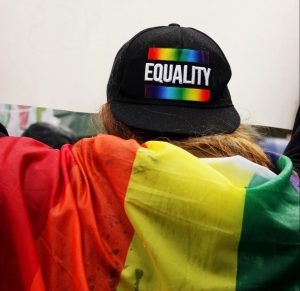
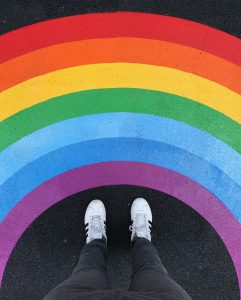
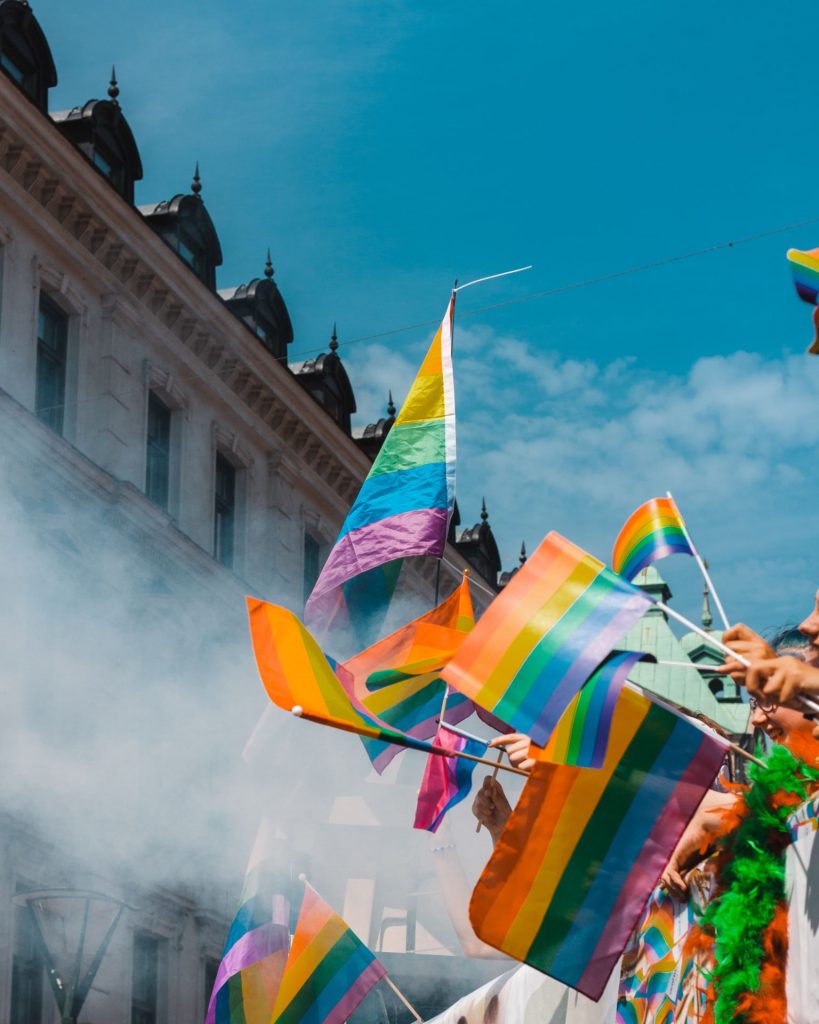

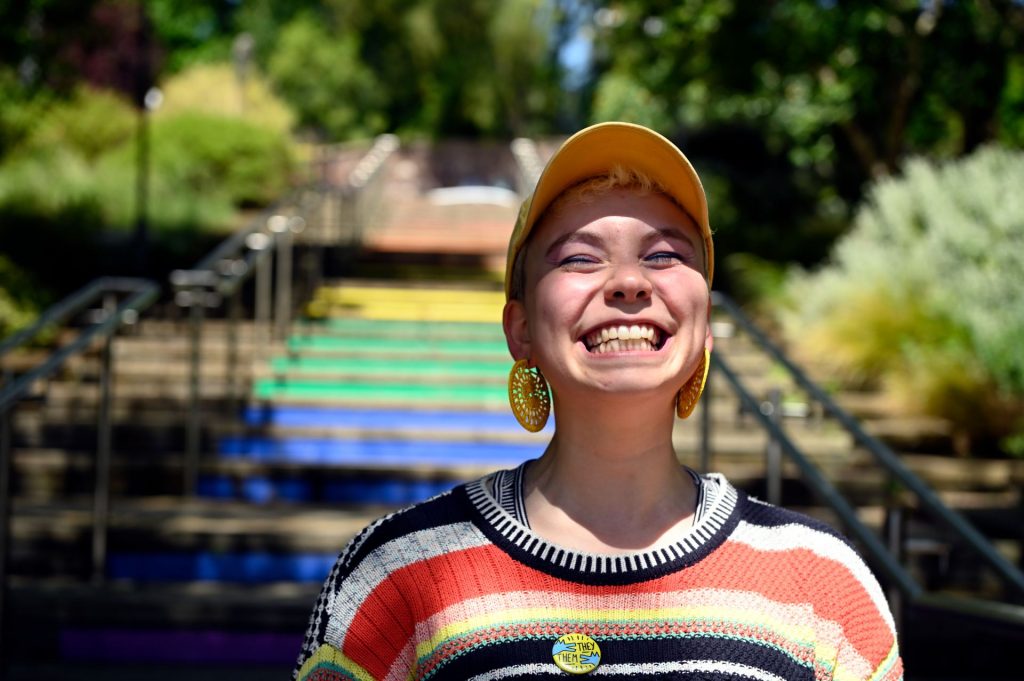
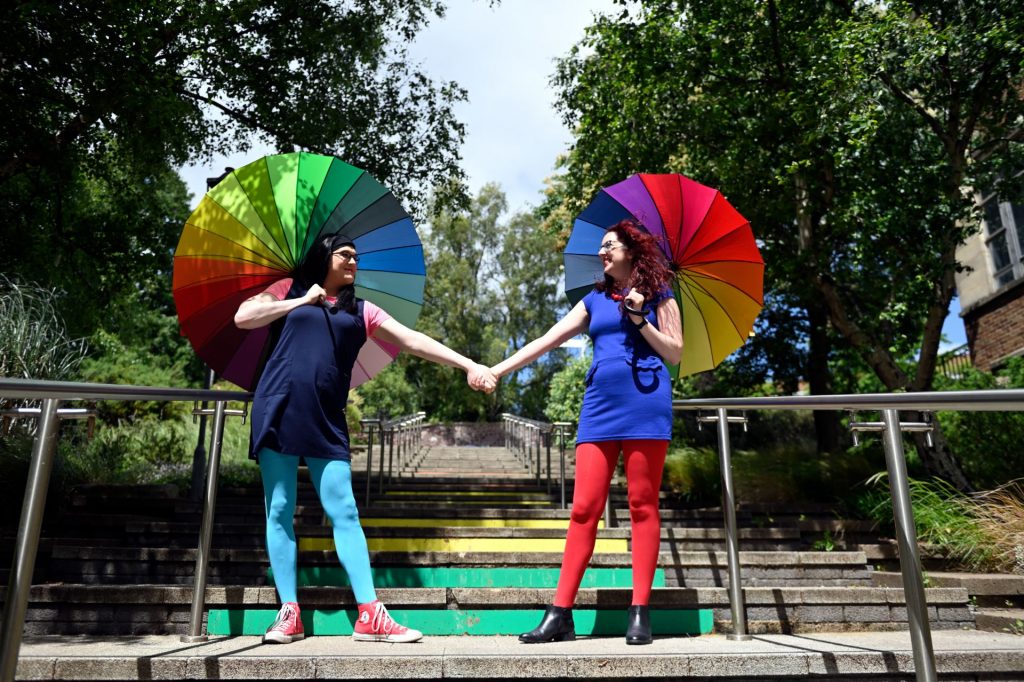

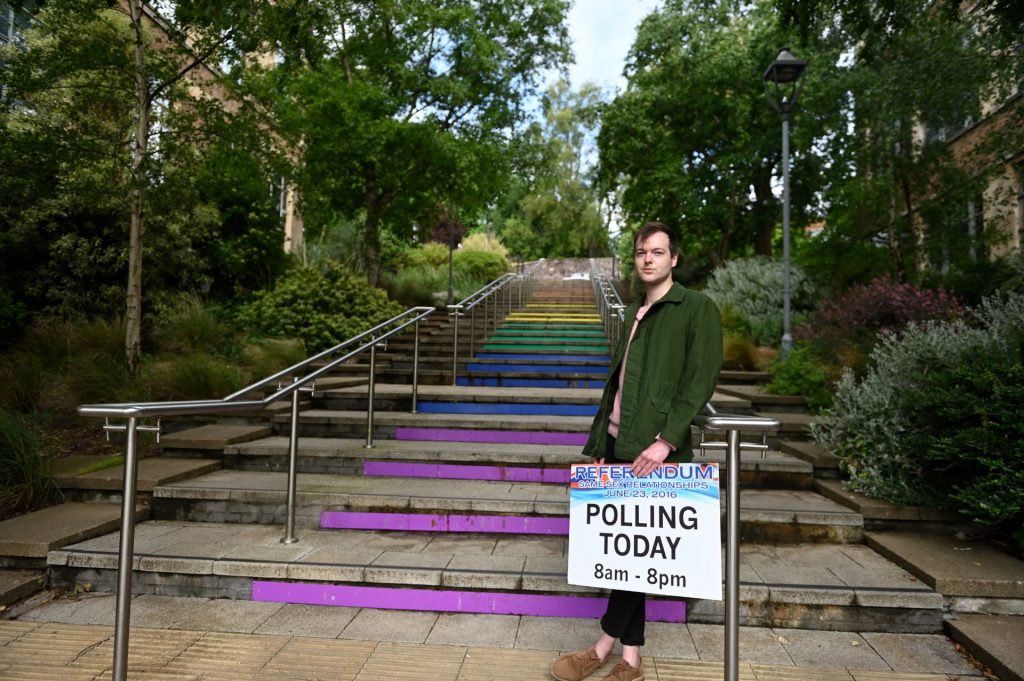
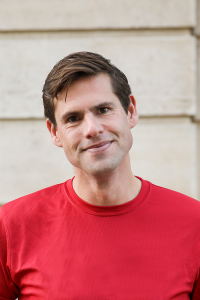 What do you remember about your first Pride march?
What do you remember about your first Pride march?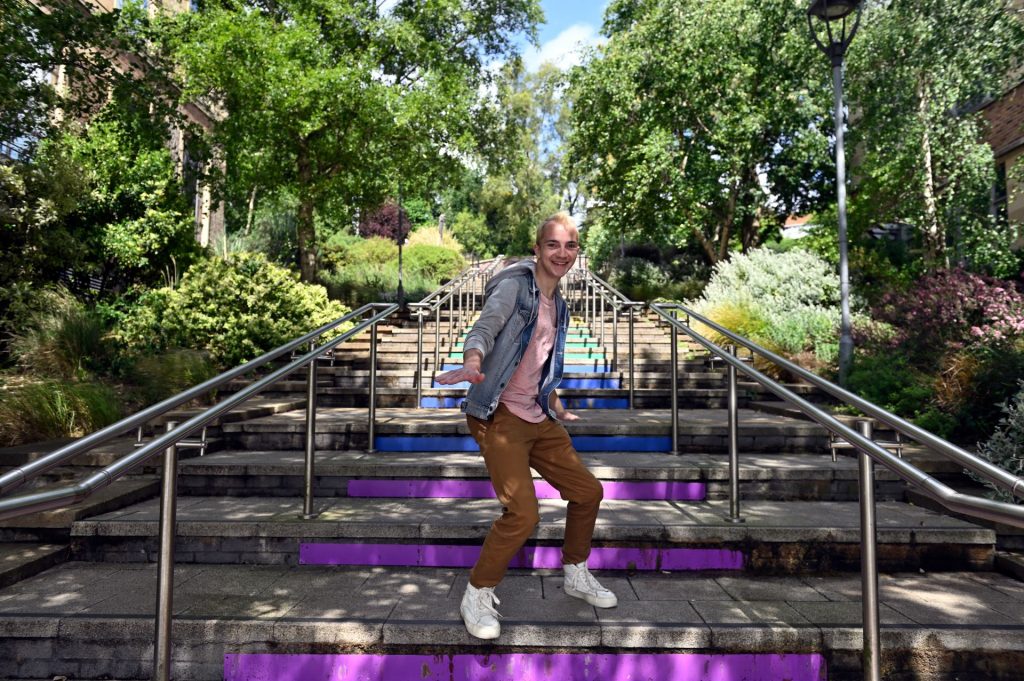
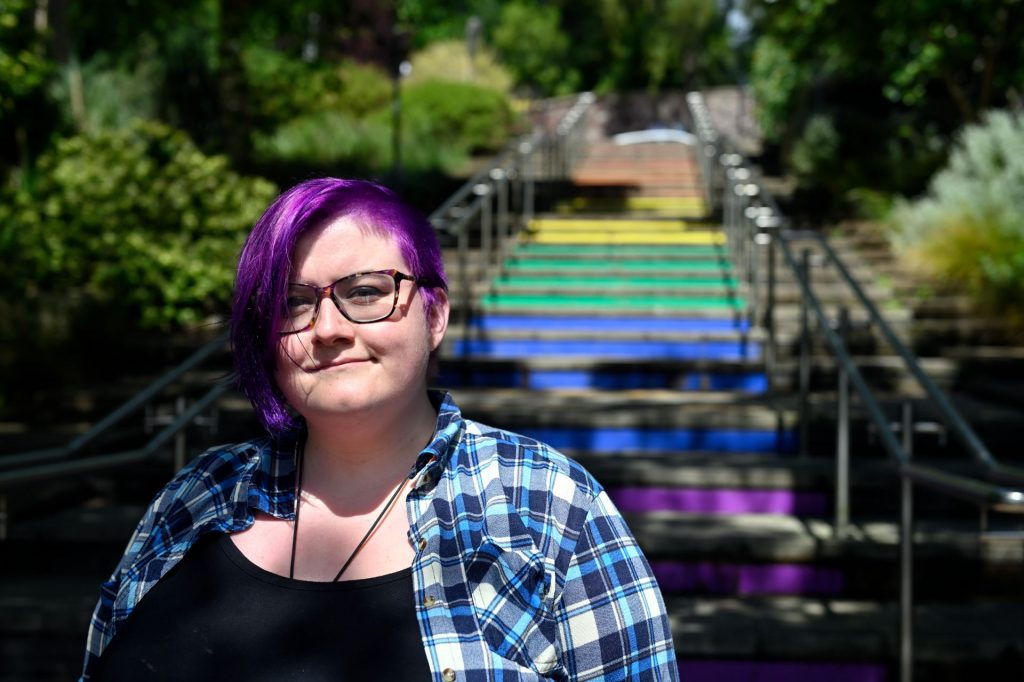
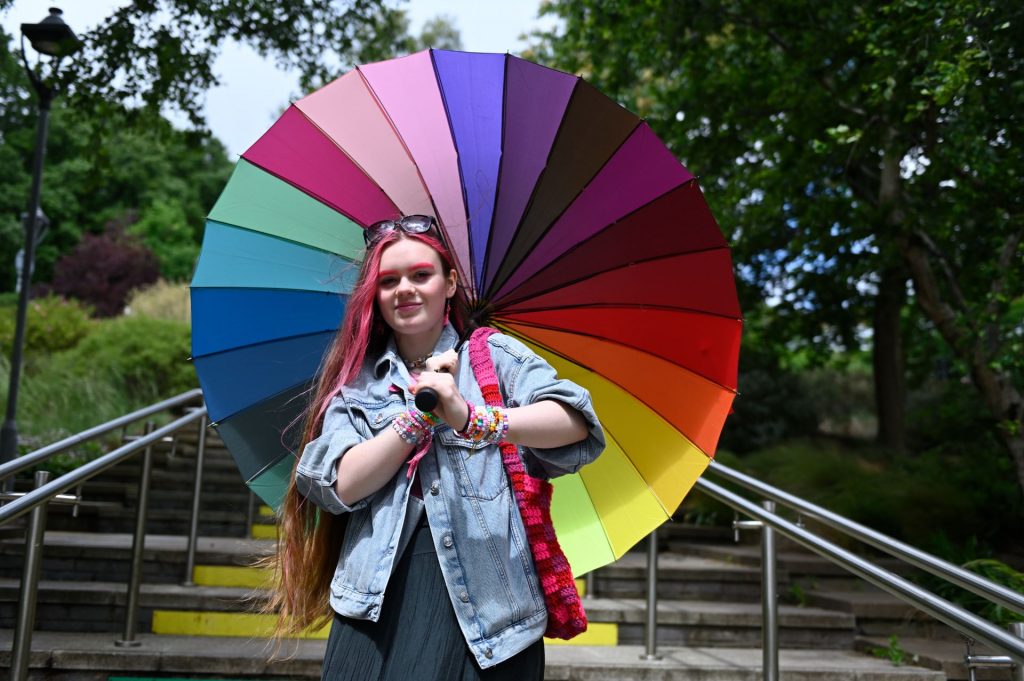
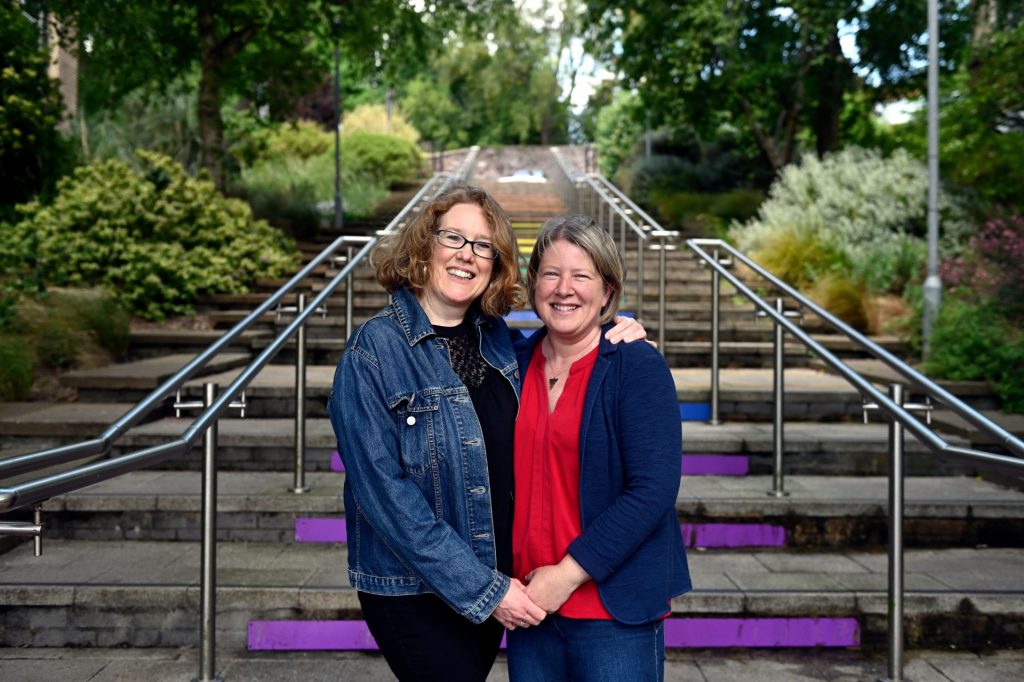
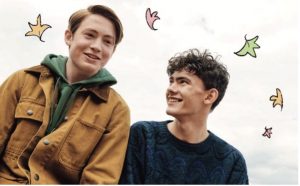 I’m sure many of you have watched, or at least heard about, Netflix’s newest hit Heartstopper. If you haven’t, it’s the story of two guys at an English secondary school who end up falling in love, and is adapted from the graphic novels of the same name by Alice Oseman. It consists of an amazing cast of LGBTQ+ characters going through issues that will be relatable for most LGBTQ+ people. It does this in a way which makes it incredibly heart-warming and doesn’t follow the usual tropes of many LGBTQ+ love films which tend to end in heartbreak.
I’m sure many of you have watched, or at least heard about, Netflix’s newest hit Heartstopper. If you haven’t, it’s the story of two guys at an English secondary school who end up falling in love, and is adapted from the graphic novels of the same name by Alice Oseman. It consists of an amazing cast of LGBTQ+ characters going through issues that will be relatable for most LGBTQ+ people. It does this in a way which makes it incredibly heart-warming and doesn’t follow the usual tropes of many LGBTQ+ love films which tend to end in heartbreak. Love, Victor – a spin off from the 2018 film Love, Simon (which itself was adapted from the book Simon vs the Homosapien Agenda by Becky Albertalli) – is airing its third and final season this month. It follows the story of Victor as he begins life at a new school, whilst also starting to question his sexuality. Whilst the first season focuses on the idea of sexuality and coming out, the second and third seasons explore the idea of life of a young LGBTQ+ person after coming out.
Love, Victor – a spin off from the 2018 film Love, Simon (which itself was adapted from the book Simon vs the Homosapien Agenda by Becky Albertalli) – is airing its third and final season this month. It follows the story of Victor as he begins life at a new school, whilst also starting to question his sexuality. Whilst the first season focuses on the idea of sexuality and coming out, the second and third seasons explore the idea of life of a young LGBTQ+ person after coming out.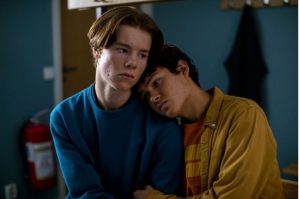
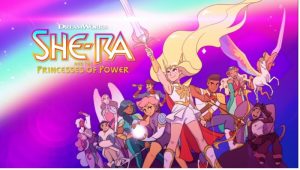 transgender characters – even if some of their identities weren’t really referenced within the actual show at all and those that were referenced weren’t until the last season. It focusses on Adora as she joins the Rebellion to fight the Horde, after gaining the power to transform into She-Ra – a 6ft warrior woman. If you want a show that is fun and silly and yet still provides strong characters and emotional moments, then it is definitely worth a watch. The Owl House follows Luz the human as she stumbles through a portal into the Demon Realm, where she trains with Eda the Owl Lady in the ways of magic. Luz herself is
transgender characters – even if some of their identities weren’t really referenced within the actual show at all and those that were referenced weren’t until the last season. It focusses on Adora as she joins the Rebellion to fight the Horde, after gaining the power to transform into She-Ra – a 6ft warrior woman. If you want a show that is fun and silly and yet still provides strong characters and emotional moments, then it is definitely worth a watch. The Owl House follows Luz the human as she stumbles through a portal into the Demon Realm, where she trains with Eda the Owl Lady in the ways of magic. Luz herself is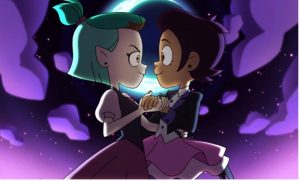 bisexual, and the show also features an array of LGBTQ+ characters – including Raine Whispers who provides notable non-binary representation. The show is made by Disney – a company who have been lacking in any form of LGBTQ+ representation in the past. These two shows allow children to grow up seeing LGBTQ+ representation on their screens, which is vital for young people to see that its okay to be LGBTQ+, whether they are LGBTQ+ or just allies.
bisexual, and the show also features an array of LGBTQ+ characters – including Raine Whispers who provides notable non-binary representation. The show is made by Disney – a company who have been lacking in any form of LGBTQ+ representation in the past. These two shows allow children to grow up seeing LGBTQ+ representation on their screens, which is vital for young people to see that its okay to be LGBTQ+, whether they are LGBTQ+ or just allies. Bly Manor is a horror show on Netflix that tells the stories of the many people – both living and dead – who inhabit Bly Manor, when a new au pair arrives at the house. Whilst being haunted, an LGBTQ+ romance blooms. Our Flag Means Death is a recently released action/comedy about pirates from director Taika Waititi. Hilarious hijinks ensue when Stede Bonnet leaves the life of an American aristocrat to become a pirate
Bly Manor is a horror show on Netflix that tells the stories of the many people – both living and dead – who inhabit Bly Manor, when a new au pair arrives at the house. Whilst being haunted, an LGBTQ+ romance blooms. Our Flag Means Death is a recently released action/comedy about pirates from director Taika Waititi. Hilarious hijinks ensue when Stede Bonnet leaves the life of an American aristocrat to become a pirate captain and then meets the feared Captain Blackbeard. The show features a diverse range of LGBTQ+ characters (with prevalent non-binary, gay and bisexual representation). Sense8 follows a group of 8 people from around the world who one day are suddenly able to communicate with e
captain and then meets the feared Captain Blackbeard. The show features a diverse range of LGBTQ+ characters (with prevalent non-binary, gay and bisexual representation). Sense8 follows a group of 8 people from around the world who one day are suddenly able to communicate with e ach other through a psychic link that forms between them. It features a diverse set of LGBTQ+ and non-LGBTQ+ characters who are all well written with meaningful relationships and impact on the plot. These sorts of shows normalise LGBTQ+ characters by not really focussing on the fact thatthey are LGBTQ+. The characters are LGBTQ+ but aren’t treated any differently for it, which makes them well-written characters who provide some very good representation.
ach other through a psychic link that forms between them. It features a diverse set of LGBTQ+ and non-LGBTQ+ characters who are all well written with meaningful relationships and impact on the plot. These sorts of shows normalise LGBTQ+ characters by not really focussing on the fact thatthey are LGBTQ+. The characters are LGBTQ+ but aren’t treated any differently for it, which makes them well-written characters who provide some very good representation.